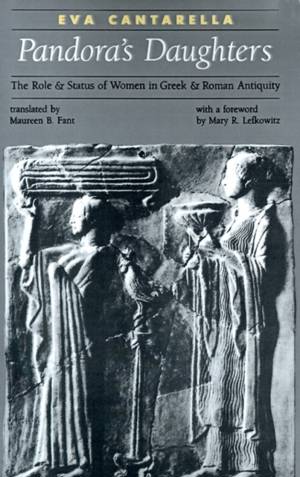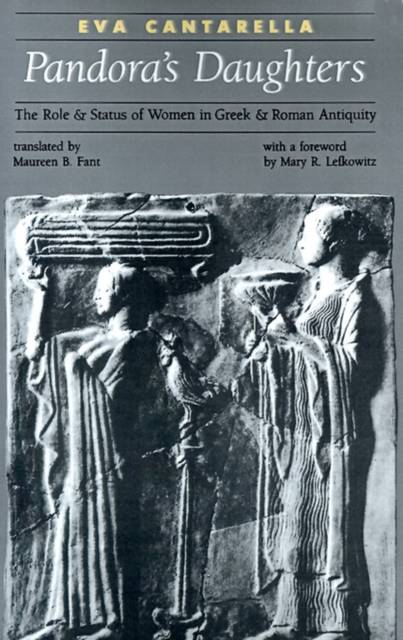
- Afhalen na 1 uur in een winkel met voorraad
- Gratis thuislevering in België vanaf € 30
- Ruim aanbod met 7 miljoen producten
- Afhalen na 1 uur in een winkel met voorraad
- Gratis thuislevering in België vanaf € 30
- Ruim aanbod met 7 miljoen producten
Omschrijving
Expanded and updated for this English-language translation, Pandora's Daughters offers the first history of women in ancient Greece and Rome to be written from a legal perspective. Moving outward from an examination of the legal evidence--the laws governing marriage and divorce, sexual behavior, and inheritance--Cantarella demonstrates how literary, anecdotal, and juridical sources can and cannot be used to discover what Greek and Roman men thought about women. She offers a provocative feminist interpretation of the sociological information that can be derived from law codes, lawyers' speeches, records and discussions of custom, and legislation to determine the status of women in society. At the same time she draws upon the evidence of myth, ritual, and literature to question whether women were actually subjugated to the extent that the alws imply.
Cantarella also provides a balanced evaluation of one of the most controversial issues in women's history, the question of matriarchy in prehistoric Greece and Rome. She considers the original sources that have been used as evidence while taking into account the historical contexts in which modern theories of women's societies have been produces.
By examining the structures of Greek and Roman society, Pandora's Daughters reveals the points at which sexual roles became codified and came to be viewed as biological rather than cultural. The societies of ancient Greece and Rome, Cantarella demonstrates, were violently misogynistic. Yet in many respects the position of women in pagan antiquity was higher than it would be under Christianity.
Specificaties
Betrokkenen
- Auteur(s):
- Uitgeverij:
Inhoud
- Aantal bladzijden:
- 248
- Taal:
- Engels
- Reeks:
Eigenschappen
- Productcode (EAN):
- 9780801833854
- Verschijningsdatum:
- 1/12/1986
- Uitvoering:
- Paperback
- Formaat:
- Trade paperback (VS)
- Afmetingen:
- 142 mm x 213 mm
- Gewicht:
- 326 g

Alleen bij Standaard Boekhandel
Beoordelingen
We publiceren alleen reviews die voldoen aan de voorwaarden voor reviews. Bekijk onze voorwaarden voor reviews.











